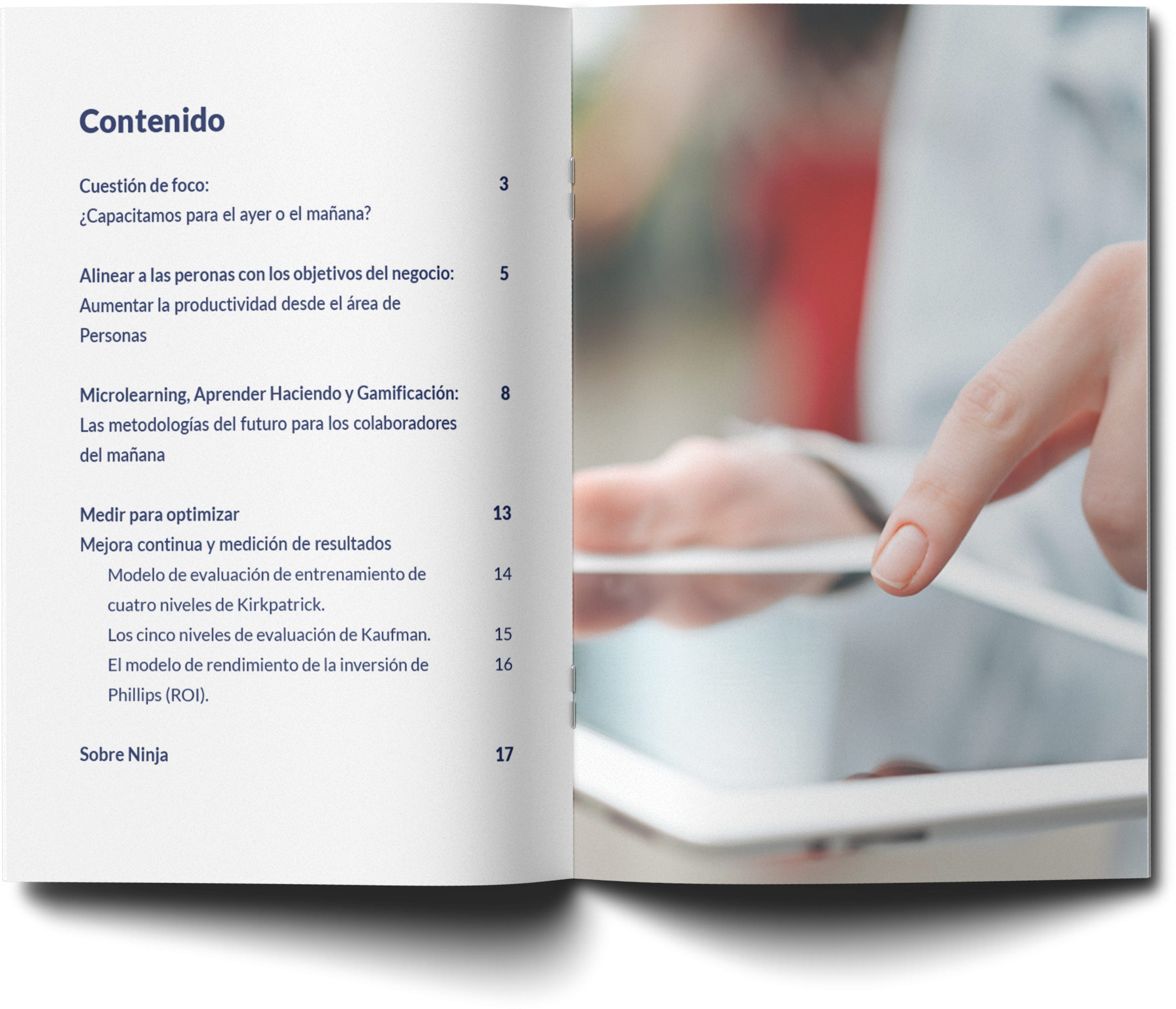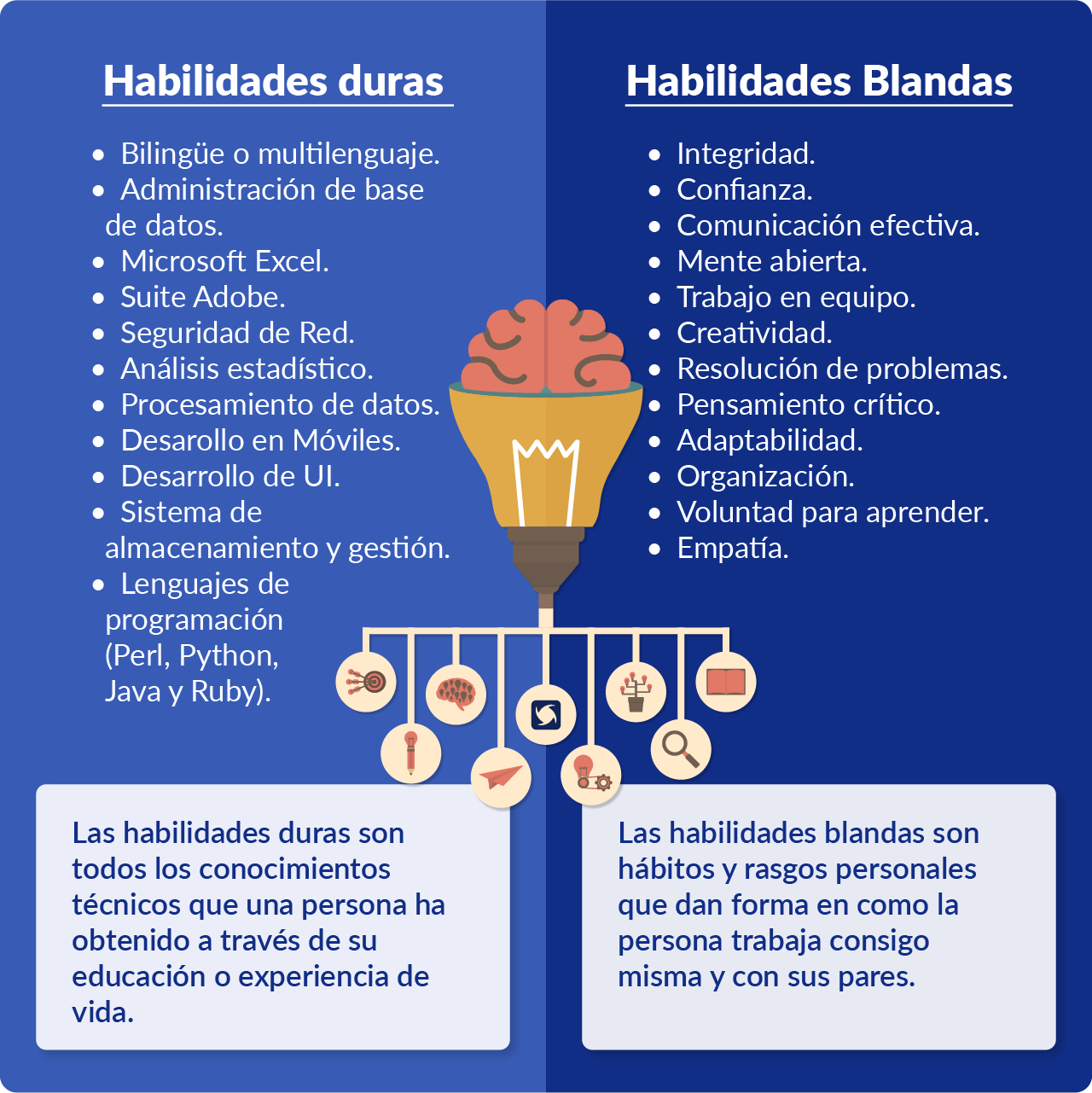Skill development: Definitions, types and examples to enhance

If we talk about skill development, perhaps it can be a very broad concept. In fact, a series of classifications are used in the literature on the subject. Soft skills, hard skills. There are also more personal or work skills.
Whatever the distinction and scope of what we mean by skills development, in every organization, it is a conversation that is more present than ever. According to the latest Workplace Learning Report made by Linkedin, states that “people-centered culture recognizes that “Organizational success depends on the success of people.”.
What factor will help improve this success? Skill development is the answer. Indeed, this same report asserts that the 25% of the set of skills demanded at work has changed since 2015. “And this number is expected to double by 2027,” he says.
So where to start? In this Ninja Excel article we will help you by landing concepts and providing examples of some skills that you should develop in your collaborators. Dive in!
Skill development and definition
Yeah let's go to the reference of the Royal Spanish Academy, we discovered that there are four definitions of the word “skill.” Let's review:
- F. Capacity and disposition for something.
- F. Grace and skill in performing something that adorns the person, such as dancing, riding a horse, etc.
- F.Each of the things that a person executes with grace and skill.
- F. Tangle arranged with ingenuity, dissimulation and skill.
And if we add the concept of “development” to the word, we can define the word “skills development” as the continuous practice of essential skills for personal and work life. They can also be physical or mental abilities.
From Personal Excellence, define skill development as:
“The process that identifies gaps in people. Secondly, you must develop and refine these skills to determine your ability to successfully execute your plans.”
Personal Excellence
In short, skill development “encompasses the knowledge, competencies, and abilities to perform operational tasks.” Skills are developed through life and work experiences. Of course, they can also be learned through study or training.

What is the skills gap?
When there is a need to enhance or improve a person's skills it is because there is a skills gap. The skills gap is defined as the “difference between an employee's skills and the skills their company requires for a specific role.”
That is how, working this gap, will help the company “structure training programs that support skills development of the employees.”
Bridging the skills gap is an urgent task. According to the report “The future of work in Latin America and the Caribbean” According to the Inter-American Development Bank, Latin America is the region with the largest skills gap in the world.
“In fact, in the talent survey of ManpowerGroup It was shown that nearly 40% of organizations in Latin America report having problems filling their vacancies. Almost the 70% mention that they do not have the appropriate candidates to fill these positions", they indicate.
Types of skill development
According to world Bank, synthesizes the type of skill development into the following four types:
- Cognitive: They encompass the ability to understand complex ideas, adapt effectively to the environment, learn from experience and reason.
- Socio-emotional: Those skills developed to manage interpersonal and social situations. These types of skills are classified as developing leadership, teamwork, self-control and determination.
- Techniques: They refer to the knowledge and experience that is learned and acquired to complete a task. This type of skills includes mastery of tools or technologies.
- Digital: The World Bank includes this type of skill as a complement to the previous ones. “They describe the ability to access, manage, understand, integrate, communicate, evaluate and create information securely and appropriately,” they state.
However, the most common classification to determine the type of skills is versus between soft skills and hard skills. Have you read, seen or heard them and you don't really understand the difference? You came to the right place. Next, we will help you differentiate it.
Hard Skills (hard skills)
The hard skills They are also known as technical skills, they are technical knowledge that the person acquires. This can be from study, training, self-education and also life experience itself. Here we leave some examples:
-
- When working in supermarkets or department stores, the person surely knows how to handle a cashier.
-
- If you studied or practiced English at an institution and are certified at level B2, you can speak fluently.
-
- By taking a basic accounting course, you may have budding knowledge in Microsoft Excel.

Soft skills (soft skills)
Meanwhile, soft skill is a personal attribute that manages to enhance a job or task to the highest level. Effective communication, for example, is a key soft skill that businesses require. For Indeed, is also included reliability, effective teamwork and active listening.
A big difference compared to hard skills, that are specific and teachable, is that soft skills are more difficult to quantify. However, they are as important for professional success as they are for improving personal relationships.
Example of soft skills to develop
There are a series of skills that you can enhance. Although hard skills are more complex to land, as it depends on the profession, area of expertise and knowledge of the collaborator, soft skills are universal. All people can be able to identify and enhance them.
Therefore, here we give you some examples regarding the skills that you should observe and improve in your workers. Let's review!
-
- Communication: Communication is a skill that encompasses people's ability to speak, write and listen.
-
- Interpersonal: These are verbal and non-verbal behaviors and reactions to interactions with other people.
-
- Organization: This includes the order of workers' physical and digital spaces. Also, by developing this skill, a person is guaranteed the ability to plan, schedule and prioritize.
-
- Problem resolution: It is the ability to handle challenging or surprising situations.
-
- Adaptability: Adaptability is your ability to adapt quickly and easily to new things. It is important to consider people who start a new job.
-
- Integrity: For Indeed, integrity “It means doing the right thing and telling the truth, even if it is controversial or opens up new challenges.”
-
- Work ethic: This includes developing traits such as reliability, responsibility, quality, determination and discipline.
- Leadership: Leadership is the ability to guide people, motivating them to achieve a goal and achieve collective objectives.
'The great challenge of updating training plans'
5 Benefits of improving skill development
Improving the development of skills in your workers brings a series of interesting benefits. Below, we list the most important ones. The information corresponds to SelectHub.
1. Talent attraction
People who are motivated and engaged at work will want to access learning opportunities. By having continuous training policies or plans, the organization and/or company will show good practice to create a positive work environment.
2. Staff development
Skill development can increase employee retention. By enhancing development, you can encourage workers to take on new roles and responsibilities with additional capabilities.
3. Plan succession
Investing in and empowering today's workers means creating leaders for tomorrow. By injecting time and resources into personal and professional growth, managers or decision makers will promote personnel who contribute the most to a company.
4. Commitment
Professional growth keeps people motivated. The good practices in training, allow companies to compete, innovate, improve the services or products offered and achieve the objectives set.
5. Performance and productivity
Talent is the greatest asset of any organization. Training opportunities contribute to better employee retention. Also to the general increase in productivity.

How to enhance the development of skills in a company?
In order to enhance the development of the skills of collaborators within a company, we not only need to identify which skills we want to enhance, but also the most effective and efficient way to do so. There are various methods to enhance the development of skills in a company.
-
- Discussion and group activities.
-
- In-person training with a teacher or on-site instructor.
-
- E-learning.
-
- Training via observation.
-
- Hands-On Training (Practical Training).
-
- Coaching or mentoring.
-
- On-the-job training.
-
- Role playing game.
-
- Social training.
-
- Case studies or other required readings.
-
- Video-based training.
-
- Simulation training.
Know identify which is the correct method that fits the specific needs of your organization is a key step to bridging the skills gap. In this way, you will be able to make solid progress in the development of your collaborators.

